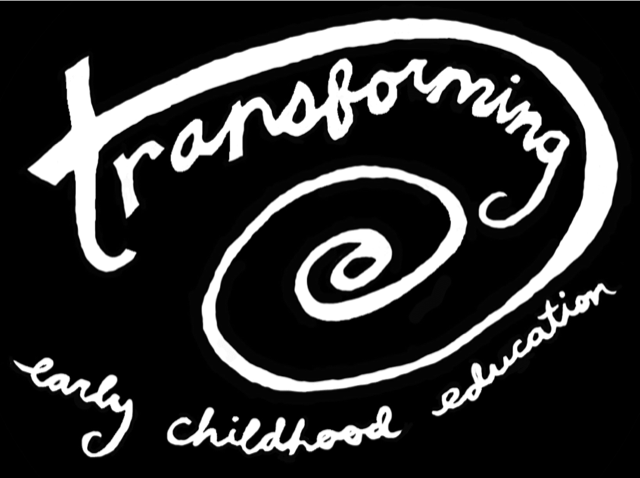WE NEED TO DO BETTER: VALUING OUR Birth TO THREE EDUCATORS
I was fortunate enough to spend some time with a wonderful group of infant and toddler teachers in Hillsborough North Carolina before the pandemic began. This visit was part of my ongoing research into what types of professional development opportunities would be most beneficial for zero to three teachers. Our conversations were both eye-opening and heartbreaking at the same time.
One sentiment that I’ve heard echoed from infant and toddler teachers across the country is that they don’t feel valued by their peers, administrators or classroom parents. This is a feeling that I know all too well. During my time as a toddler teacher it was hard for me to see the connection between being a caregiver and an early childhood educator. I spent my days changing diapers, redirecting, settling big feelings and tidying up. If I couldn’t see my value as an educator than how would anyone else? It took years of reflecting and researching before I truly understood the importance of the work I was doing each day.
According to Center for the Study of Child Care Employment “the work of an infant/toddler educator is clearly of vital importance to children in their first three years of life and can be enormously rewarding, yet it is also hard work, at low pay, and generally accorded little social respect. Every day, in homes and centers across the country, two million or more adults are paid to care for and educate children between birth and age five, with half or more working with infants and toddlers.” We need to do a better job valuing the educators who spend their days with our youngest learners.
Our zero to three educators know that one of the most important periods in a human’s life to stimulate learning occurs from birth to three years of age. This makes the work they do demanding. Not only do they have to give of themselves all day long they need to be experts in child development theory and practice. They need to balance the needs of each of the children they are caring for with the requirements of the program all while earning half the median pay of kindergarten teachers. This means that many of our early educators are working multiple jobs just to make enough money to support their families.
I read so many articles recently about the need for universal childcare. While I have many opinions on this subject what really stood out was that if we have standards in place the educators will provide higher quality care which would enable them to make more money because they will be doing the work of “teachers”. Let me make one thing perfectly clear when you are caring for children from birth-3 you are a teacher. You not only understand development theory and milestones you also apply this knowledge to everything you do all day. You support co-regulation while making connections and soothing those ever present big feelings. A child’s brain triples in size in the first three years and you spend your days interacting and responding to each coo, giggle or first word. You speak more in one day to your little learners than most people speak in a week. Please hear me when I say that you are doing the most important work. You are teaching tiny humans what trust, empathy, compassion, and love feel like.
I recently facilitated a series of workshops designed for zero to three teachers. A group of preschool and school-age teachers also attended these workshops. At one point a teacher asked those who taught the older children why they were attending the trainings. One of the teacher’s responded that she was sure she would gain useful information she could use with her students. This group of teachers was taking the time to learn all about early development, co-regulation and behavior guidance. Why is it that we assume that our zero to three teachers can always gain skills when participating in professional development designed for preschool teachers but we don’t see the benefits of preschool teachers participating in zero to three workshops?
We can do better. I truly believe that to provide the support educators need we have to find ways to educate our staff, families, and broader community on the importance of development that occurs between birth-3 years of age.
For school administrators:
Find quality articles/research on birth-3 to share and discuss with all of your teaching staff.
Schedule professional development opportunities that alternate between all teachers participating in preschool age workshops and infant toddler workshops.
Educate the parents (caregivers) in your program on the importance of birth-3 education.
For preschool teachers:
Talk to your peers who provide care for infants and toddlers about the work they are doing in their classroom.
Observe in an infant and toddler classroom to get a feel for what their day is like.
Request more professional development on early brain development and physical development.
For infant & toddler teachers:
Take pride in what you do each and everyday.
Share the work that is occurring in your classroom with your peers/classroom parents.
Seek professional development that is designed specifically for infant and toddler teachers so you can continue to learn and grow in your teaching practices.
Let’s take to heart these important words from Mahatma Gandhi, “Be the change you wish to see in the world.”


